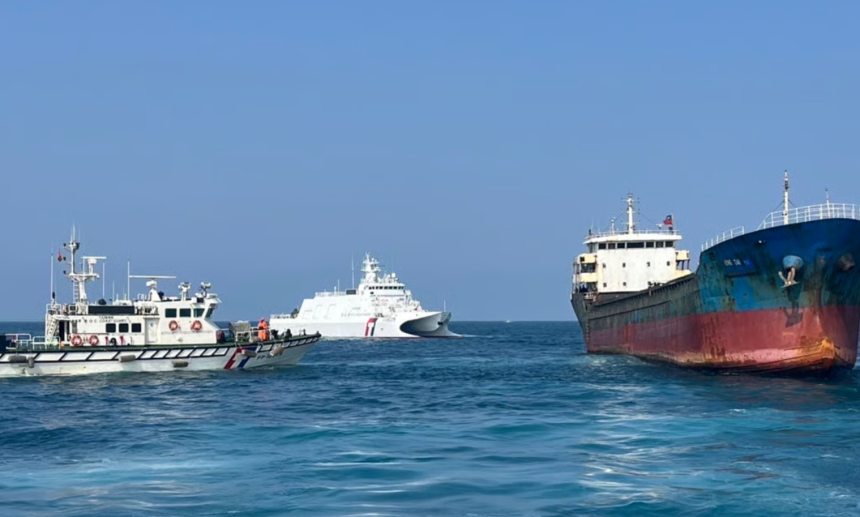Taiwan has sentenced a Chinese ship captain to prison for deliberately damaging a critical undersea communications cable, marking the first conviction of its kind and escalating tensions across the Taiwan Strait.
Incident and Arrest
The case stems from a February 2025 incident, when the Togo-flagged vessel Hong Tai 58, crewed by Chinese nationals, was caught severing a section of the Taiwan–Penghu No. 3 submarine fiber-optic cable off the southwest coast near Tainan. The vessel had reportedly zigzagged near the cable route and dropped anchor in a restricted zone.
Taiwan’s Coast Guard detained the ship and arrested its captain, identified by the surname Wang, on February 25. Authorities described the vessel’s movements as highly suspicious and consistent with deliberate sabotage.
First Prosecution Under Telecommunications Law
Wang was charged under Taiwan’s Telecommunications Management Act—the first time this law has been used against a foreign national for cable damage. The statute carries a sentence of up to seven years in prison and a fine of up to NT$10 million (approximately US$305,000).
Prosecutors emphasized that the damage was not the result of accident or negligence but an intentional act that disrupted Taiwan’s digital infrastructure and public communication systems.
Refusal to Cooperate
During questioning, Wang refused to identify the ship’s ownership or explain the purpose of the voyage. Investigators also noted that the vessel attempted to avoid detection and did not issue standard maritime warnings during anchoring.
Although the captain denied wrongdoing, the court ruled that the evidence, including navigational data and witness testimony, indicated deliberate sabotage.
A Pattern of Maritime Harassment
The conviction comes amid growing concern over the vulnerability of Taiwan’s undersea cables. Authorities reported five cable disruption incidents in 2025 alone—up from three in each of the previous two years. Many of the vessels involved were flagged under countries of convenience, such as Togo or Cameroon, but operated by Chinese crews.
Defense analysts argue these actions form part of China’s “gray zone” strategy—applying sustained pressure on Taiwan without resorting to open conflict.
Taiwan’s Response and Defensive Measures
Taiwan has responded by blacklisting nearly 100 foreign-flagged vessels linked to previous disruptions and increasing naval and Coast Guard patrols near cable routes. Lawmakers are also considering tighter maritime enforcement and enhanced satellite internet backup systems to reduce reliance on physical cables.
This case is being seen as a critical test of Taiwan’s ability to defend its infrastructure through legal and maritime deterrence.
Broader Implications
The sentencing sends a strong message: Taiwan will not tolerate covert interference with its infrastructure. Legal experts see this as a significant precedent, reinforcing the island’s jurisdiction over strategic assets and its resolve to push back against unconventional threats.
As geopolitical tensions persist, Taiwan’s efforts to fortify its communication networks and hold foreign actors accountable may become a blueprint for other nations facing similar undersea vulnerabilities.











